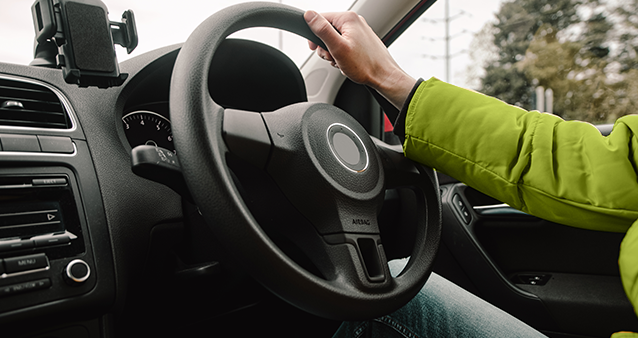How does your Car Insurer calculate your risk profile?

How do insurers determine your risk? And how much are you being charged for it? Find out what you can do to improve your risk profile, or at least lower your premiums.
A bad VW Polo driver can end up paying almost as much as a good BMW 3-Series driver for their car insurance (Disclaimer: we understand that this might a) feel unfair and b) be based on the outrageous assumption that there's such a thing as a 'good' 3-Series driver).
Yes, your insurance premium is determined by the kind of car you drive and how much it would cost to replace it, but the way you drive – whether you're a model driver in a Polo or you two-wheel around corners in a Beemer (or the other way around) – also plays a role.
Thing is, no insurer really knows how YOU drive. They make these assumptions based on statistics, and we all know that numbers can be interpreted in many different ways. That's why it's important to take your fate, your risk profile, and your premiums into your own hands.
Start by understanding more about your profile and how to change it, and compare Car Insurance to find better. Whatever your risk profile, you have options.
By the numbers
Which car models are involved in the most road accidents? You might be surprised. A MasterDrive study shows that VW Polos top the list, but that doesn't necessarily mean that Polos are unsafe or that Polo drivers are the worst on South African roads. (It could be a function of how many Polos are out there!) Second and third on the naughty list are the Toyota twins: Hilux and Quantum. And considering the way many Quantums are driven, it's a miracle they're only third.
What's the big deal with risk profiles anyway?
The way your policy premium is calculated, based on your risk profile, takes into account:
- your vehicle model/type
- your age
- how long you've had your licence
- how often you've made vehicle-related insurance claims in the past
- where and how far you drive
- where you live
- where your car is most often parked
... plus a bunch of other stuff that would make your head hurt. So let's work with those basics.
Your vehicle
While replacement value is the most important factor, if you're driving a cost-effective car, the parts won't be as expensive to replace as they would be on a costlier model. This is important if you're involved in an accident and need to replace any broken bits and pieces - it's going to cost your insurer more to have replacement parts imported from a small Swedish town than it would to pick them off the shelf in Uitenhage.
Also read: Are balloon payments a good way to save on car repayments?
Your age (and how long you've had a licence)
If you're young or haven't had your licence for very long, the assumption is that you have less experience behind the wheel and that's likely to affect your premiums.
Your reputation in the claims department
If you're on first-name terms with your insurance assessor, or you know your VIN number off by heart, you'll be considered more of a risk because of your claims or accident history. Your insurer will assess your risk profile accordingly.
Your NB area codes
Insurers will ask you for your day- and night-time parking addresses because (no surprises here) if you park your car on the street in a dodgy suburb of Joburg at night, it's more likely to be broken into or stolen than if you were based in the crime-free utopia of Putsonderwater.
What does this mean for your risk profile and premiums?
When comparing car insurance quotes, it's important to understand exactly how factors like where you live, how long you've had a licence, the level of excess you want and how long you've been claim free can affect your premiums – even if you're a 3-series driver (we have faith in you!). Because these details, and many more, play a role in building your risk profile and determine how car insurers charge you.
This article is for informational purposes only and should not be construed as financial, legal or medical advice.
Hippo Blog Categories

































